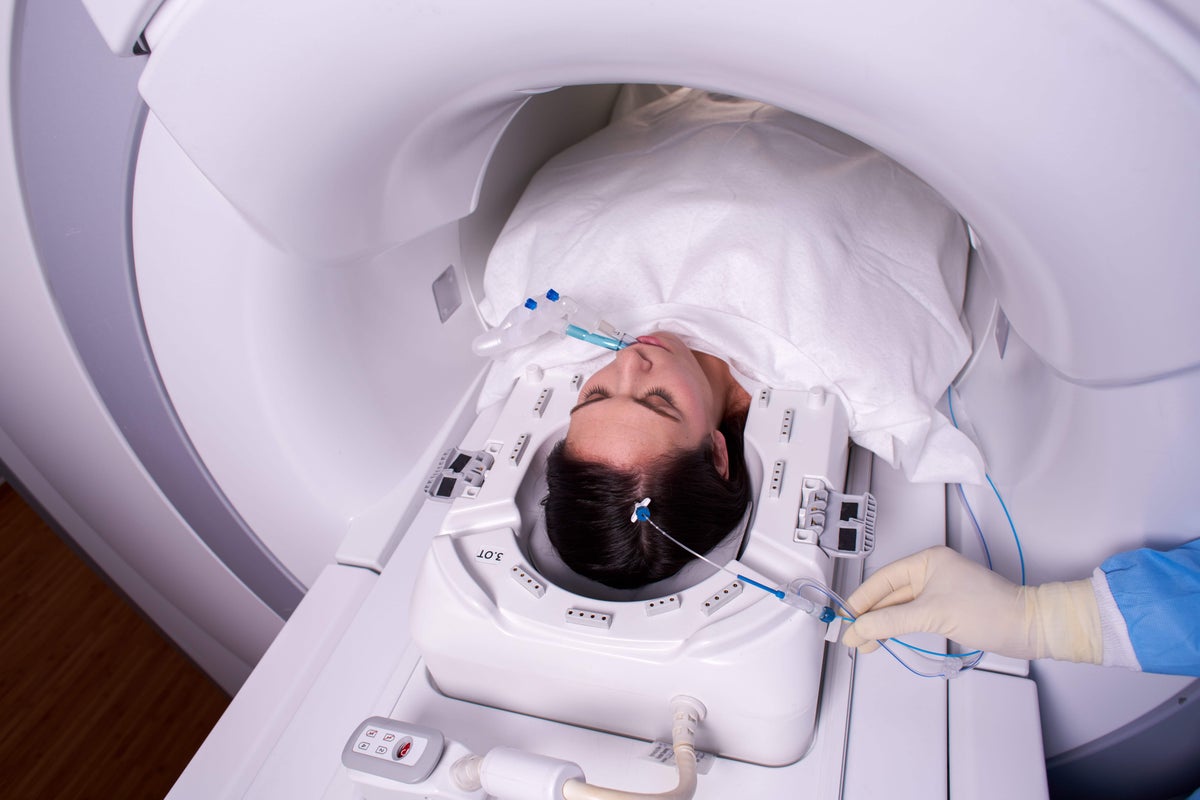
Fibre optic laser therapy, which could transform the lives of people with hard-to-treat epilepsy, is being rolled out across the NHS.
The treatment uses lasers to target the part of the brain that causes seizures and avoids the need for invasive surgery.
The therapy will benefit up to 150 patients every year, with the first surgeries set to take place early in 2023, NHS England said.
NHS medical director Professor Sir Stephen Powis said: “This pioneering laser beam treatment for epilepsy patients is life-changing and will offer hope to up to 150 people every year who have not had success in preventing seizures with traditional drugs.
“By replacing invasive neurosurgery with a cutting-edge laser therapy, allowing clinicians to better target the parts of the brain causing the epilepsy, we not only dramatically reduce risks to these patients, but drastically reduce their recovery time both in and out of hospital.”
The therapy uses a 1.5mm-wide probe with the laser at its tip, which is inserted into the skull.
The patient is put in an MRI scanner and the clinical team navigate through the brain, avoiding blood vessels and other critical structures.
Once the brain tissue causing the epilepsy is located, it is heated up and destroyed.
The team can monitor the temperature of the surrounding areas to ensure healthy brain tissue does not overheat.
Patients usually only need to stay in hospital for a night and can return to their usual work and activities within a week.
This innovative laser therapy is a game-changing breakthrough for patients— Professor James Palmer, NHS England
The treatment may be suitable for the up to one in three patients whose epilepsy cannot be controlled by drugs alone.
Until now, those people may have needed invasive neurosurgery to remove the epilepsy-causing part of the brain.
Around one in 100 people suffers with epilepsy and there are around 600,000 people living with the condition across the UK.
Under the therapy guidelines, fibre optic treatment could suit people with focal epilepsy that has not been controlled with two or more appropriate anti-seizure medications at maximum tolerated doses.
The people must also have attended an epilepsy surgery centre and would have a form of epilepsy that could make open neurosurgery highly risky.
Alison Fuller, director of health improvement and influencing at Epilepsy Action, said: “Traditional brain surgery can be a really effective treatment for those eligible, and we hear from many people who say it’s had a really positive impact on their seizures.
“But choosing to have invasive surgery can be an incredibly difficult decision to make given the potential risks and long recovery times involved.
“This can sometimes mean staying with the status quo of taking epilepsy medications which can come with their own challenges and side effects, such as memory problems and tiredness.
“We hope that making this exciting new treatment available on the NHS gives even more people with epilepsy the chance to achieve better seizure control, which will improve outcomes and ultimately their quality of life.”
NHS medical director for specialised services, Professor James Palmer, said: “This innovative laser therapy is a game-changing breakthrough for patients who have not had success with traditional forms of treatment to control their seizures and will give those with epilepsy a real chance to live a normal life.
“The NHS is committed to rolling out cutting-edge treatments as quickly as possible – it is just one of seven new innovations that the NHS is making available to patients from today across the country following the latest review of treatments and technologies that should be prioritised for investment.”
Health minister Robert Jenrick said: “Innovation in healthcare is crucial to transforming services and ensuring the NHS is leading the charge in delivering world-class care.
“Yet again, this technology is testament to the UK’s constantly being on the front-foot in the discovery of ground-breaking technology to help us deliver our Plan for Patients and ensure people can get the right care, right now.”







